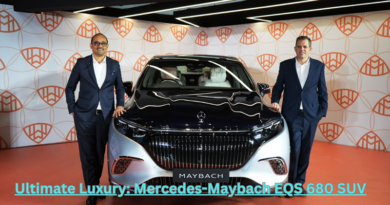Electric Cars : Saving India’s Cities from Choking?

Main Pointers:
New Delhi: India’s megacities are infamous for their gridlock and suffocating air pollution. A 2023 IQAir report ranked Delhi as the world’s most polluted capital city for the fourth year in a row. But a new wave of electric vehicles (EVs) promises a cleaner, quieter future. So, can EVs be the answer to India’s urban woes?
Pollution Puzzle Piece
There’s no denying that Electric Cars are a crucial piece of the puzzle. Unlike conventional vehicles, EVs produce zero tailpipe emissions. A study by the Centre for Science and Environment (CSE) in 2022 found that Electric Cars could lead to a significant reduction in air pollutants like PM2.5 and NOx, which are major contributors to respiratory problems. This translates to improved health outcomes for millions of urban residents, especially children and the elderly.
Silent Streets
The switch to Electric Vs would also bring a welcome reduction in noise pollution. A 2021 World Health Organization report highlighted the negative impact of traffic noise on cardiovascular health and cognitive function. The constant roar of traffic engines is a major source of stress for city dwellers. EVs, with their near-silent operation, could create a calmer and more pleasant urban environment.
Challenges on the Road Ahead
However, the widespread adoption of EVs in India faces several hurdles. Charging infrastructure is a major concern. A 2023 report by NITI Aayog, India’s national think tank, found that the country has a long way to go in terms of building a robust charging network, especially for long-distance travel. Additionally, the initial cost of EVs can be higher than traditional vehicles, deterring some buyers. A recent study by the Federation of Indian Automobile Manufacturers (FIAM) revealed that the average price of an EV in India is nearly double that of a comparable gasoline or diesel car.
Government in the Driver’s Seat
The Indian government is actively promoting EV adoption. Initiatives like the Faster Adoption and Manufacturing of Electric Vehicles (FAME) scheme offer subsidies and tax breaks, making EVs more affordable. Additionally, there’s a push to develop a robust charging network across the country. The government aims to install 1.75 million charging stations by 2025, according to a 2021 announcement by the Ministry of Power.
While challenges remain, the future of EVs in India looks promising. A 2023 report by McKinsey & Company predicts that EV sales in India could reach 30 million units by 2030, accounting for 30% of the total car market. With continued government support, technological advancements that bring down battery costs, and increasing consumer awareness about the environmental and health benefits, EVs have the potential to transform India’s urban landscape. A cleaner, quieter future for Indian cities might just be a charged-up ride away.
FOLLOW FOR MORE .







在这里下载Telegram官网最新版,适用于所有主流操作系统。本站为你提供详细的纸飞机使用指南,包括如何下载、安装以及设置中文界面,帮助你轻松使用这一全球领先的通讯 https://www.telegrambbs.com